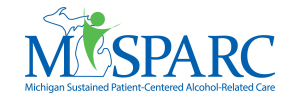MEDICATIONS FOR ADDICTION TREATMENT (MAT) READINESS AND IMPLEMENTATION CHECKLIST
Download Checklist PDFTool Purpose: This tool is designed to be a helpful guide for leadership at any health care provider considering providing medications for addiction treatment. The questions in this document can assist in determining organizational readiness to implement MAT, though there may be others depending on the design and make up of your organization. The questions are organized into five key sections:
- Organizational readiness
- Workforce readiness
- Patient and caregiver readiness
- Economic and regulatory readiness
- Community readiness
Each section includes a series of questions regarding areas to be considered before implementing a successful and sustainable MAT program. These sections and questions reflect consensus from interviews and discussions with experts (see Acknowledgements) as well as representatives of organizations that have successfully implemented MAT.
Tool Completion: This tool can be completed by key staff at any agency considering implementing MAT.
Directions: Each section includes a series of questions regarding key areas for implementing a successful and sustainable MAT program. Review each question in consideration of the following scale:
- Not Ready = You do not have this information and you do not have a plan to obtain it.
- In Progress = You do not have this information, but you have a plan to obtain it.
- Ready = You have the information needed and/or a plan to address the question cited.
For each set of questions, place a checkmark in the category that best describes your current status. Count the totals from each category. Questions and sections with high numbers of responses of “Not Ready” or “In Progress” should be prioritized as items to be addressed while moving forward with MAT implementation.
ORGANIZATIONAL READINESS
An organization's readiness to take on such an initiative is critical to the successful implementation of any new initiative. When implementing MAT services, organizations must have significant administrative support and clear organizational processes in place.
FINANCIAL AND REGULATORY READINESS
Coverage and reimbursement for MAT varies from state to state for both the public sector and private insurance marketplaces. Many states and commercial health plans require some form of preauthorization and some require that providers begin treatment with certain medications (step therapy). As coverage and policies may change over time, it is important to stay informed about your state's policies and private insurance options to find out where reimbursement is possible.
WORKFORCE READINESS
An organization's readiness to take on such an initiative is critical to the successful implementation of any new initiative. When implementing MAT services, organizations must have significant administrative support and clear organizational processes in place.
COMMUNITY READINESS
In addition to robust internal policies and procedures, sustaining MAT over the long term requires access to other community resources to enhance the services your organization provides.
PATIENT/CAREGIVER READINESS
Education and engagement of patients and families on the use of MAT is key to sustaining treatment services beyond the organization's walls. Providing patients and families with proper information helps involve them in the self-management of their treatment.
NEXT STEPS: MOVE FROM READINESS TO ACTION
Take a look at where your responses fall in each section. They should give you a clear picture of where you have knowledge gaps and point out potential barriers to success. Depending on what gaps you have identified, your next step may be to share further information with staff or your agency leadership or form a plan to educate community members and leaders.
ACKNOWLEDGEMENTS
Expert Panel for Checklist Development
Genie Bailey, MD, DABAM
Associate Clinical Professor of Psychiatry and Human Behavior, Brown University; Direstor of Research and Medical Direstor of Dual Diagnosis Unit, Stanley Street Treatment and Resources (SSTAR)
Jim Sorg, PhD
Director of Care Integration and Information Technology, Tarzana Treatment Centers, Inc.
Mady Chalk, PhD, MSW
Principal and Managing Director, The Chalk Group
Robert Cabaj, MD
Chair of Psychiatry, Medical Director, San Mateo County Behavioral Health and Recovery Services
Key Informants for Checklist Revision
Kelly Ramsey MD, MPH, MA, FACP
Associate Chief of Addiction Medicine, NYS OASAS
Kemi Alli, MD
Chief Executive Officer, Henry J. Austin Health Center
Krisanna Deppen, MD
Program Director, Grant Medical Center Addiction Medicine Fellowship, OhioHealth
Marc Fishman, MD
Medical Director, Maryland Treatment Centers
Staff Contributors
Aaron Williams, MA
Senior Director of Training and Technical Assistance, Integrated Health Consultant, National Council for Mental Wellbeing
KC Wu, MPH
Project Coordinator, National Council for Mental Wellbeing
Tom Hill, MSW
Senior Advisor of Addiction and Recovery
Mary E. Johnson
Editorial Manager, National Council for Mental Wellbeing
For more information, please contact Aaron Williams at: AaronW@TheNationalCouncil.org
Funding for this initiative was made possible (in part) by grant nos. 1H79TI083343 and 6H79TI080816 from SAMHSA. The views expressed in written conference materials or publications and by speakers and moderators do not necessarily reflect the official policies of the Department of Health and Human Services; nor does mention of trade names, commercial practices, or organizations imply endorsement by the U.S. Government.
